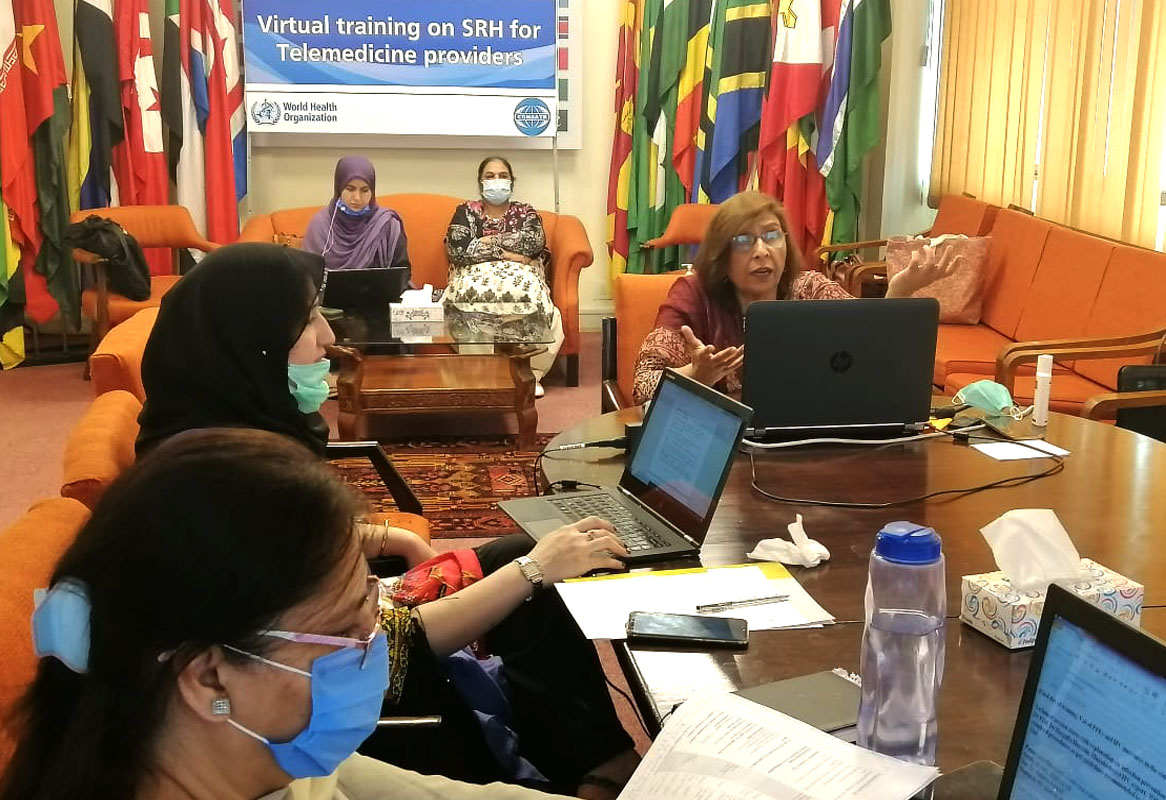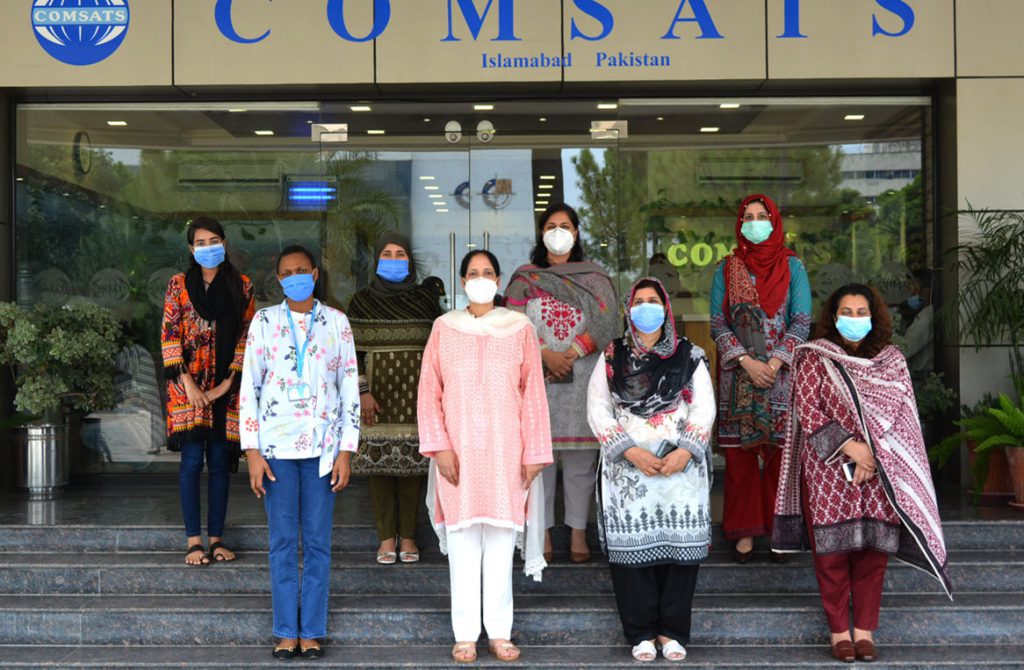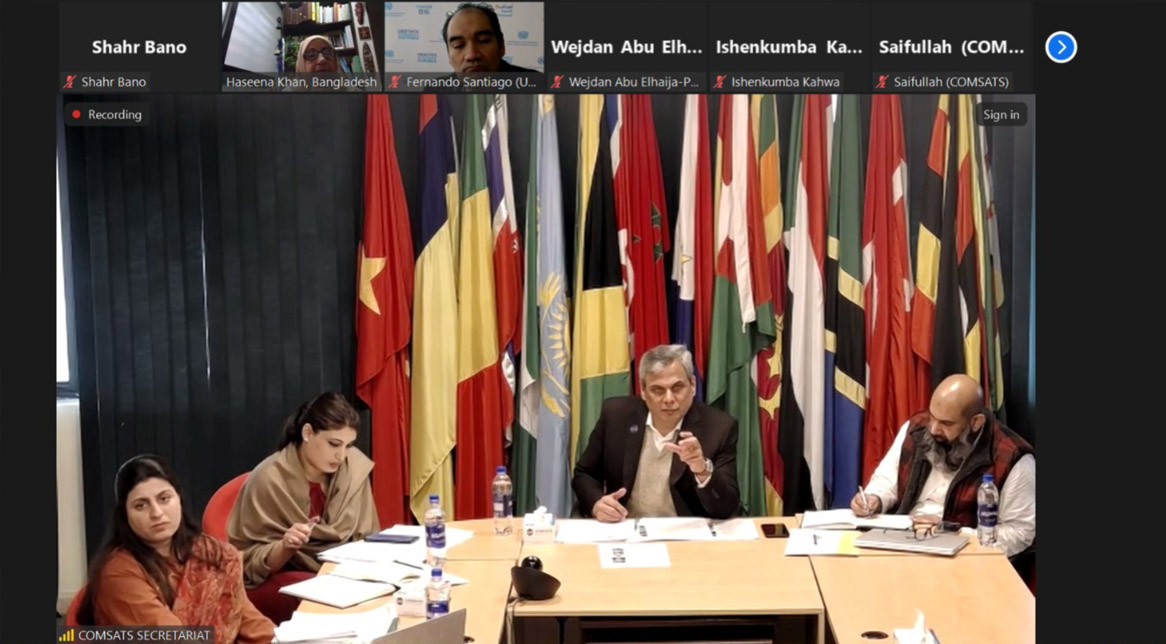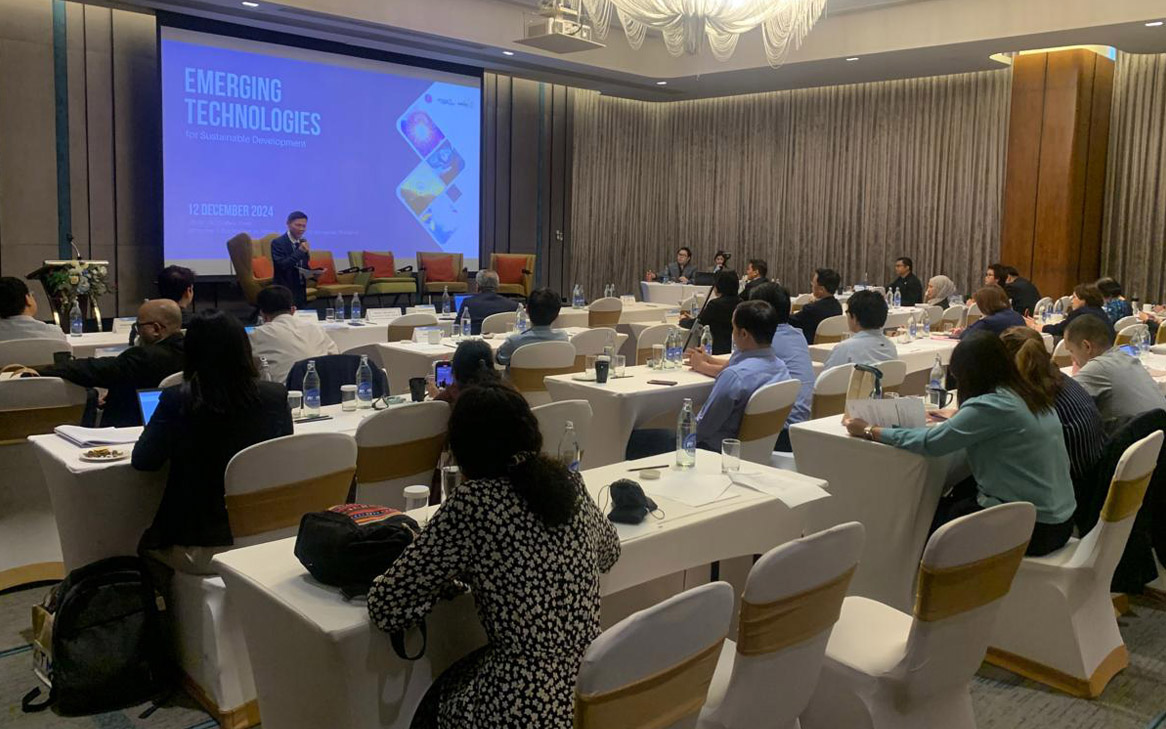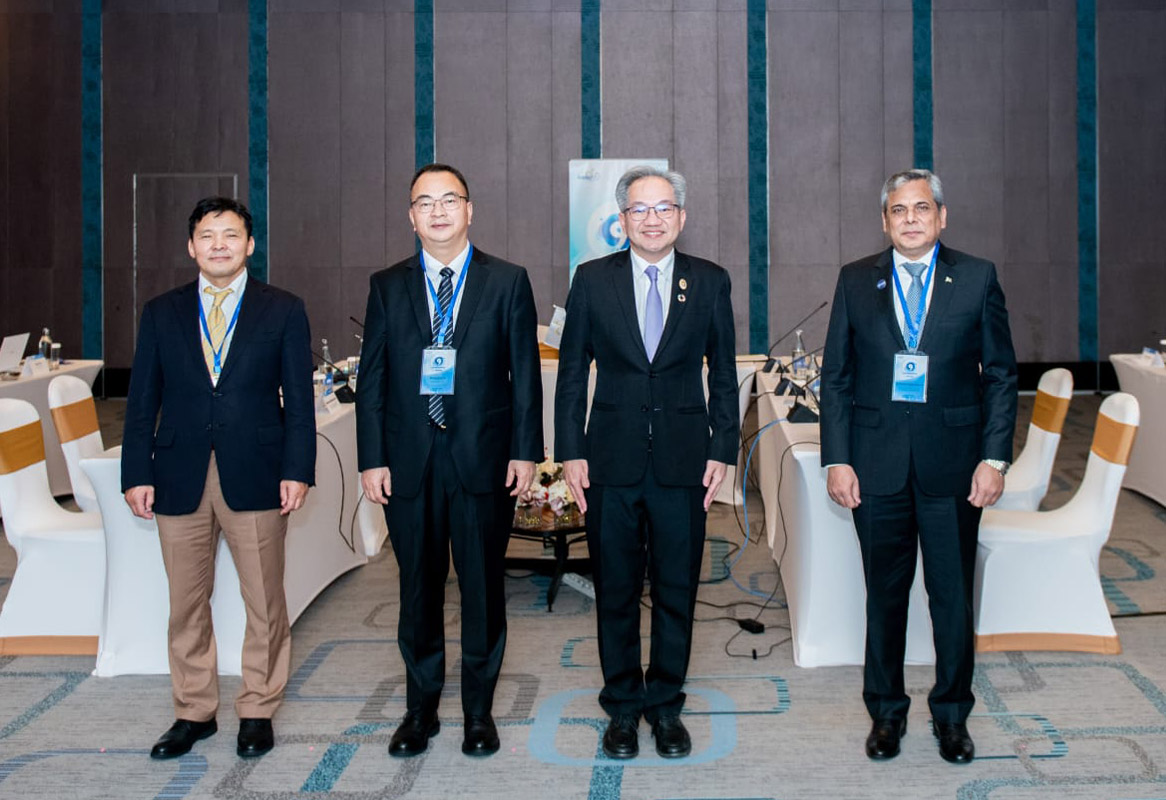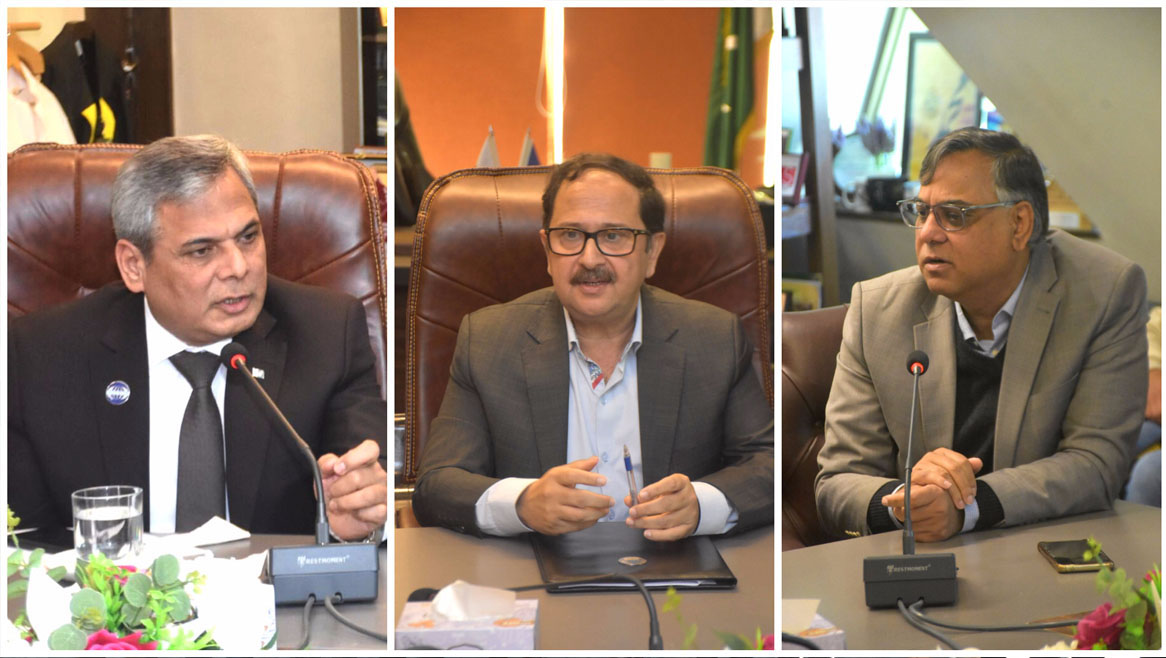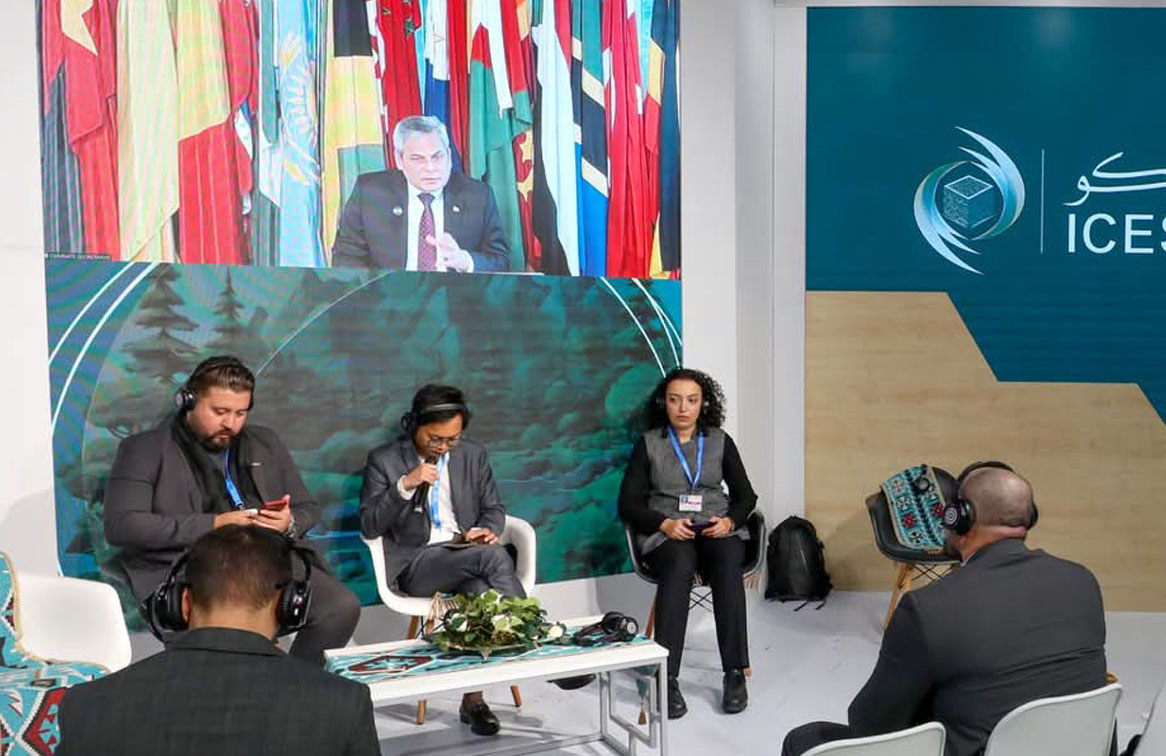COMSATS in collaboration with the World Health Organization (WHO) Pakistan, and the Ministry of National Health Services, Regulations and Coordination (MoNHSR&C), Government of Pakistan, conducted a second round of virtual training on Sexual, Reproductive and Maternal Health (SRMH) for telemedicine providers from 13th – 24th July 2020.
The present phase of the training was especially designed for skilled birth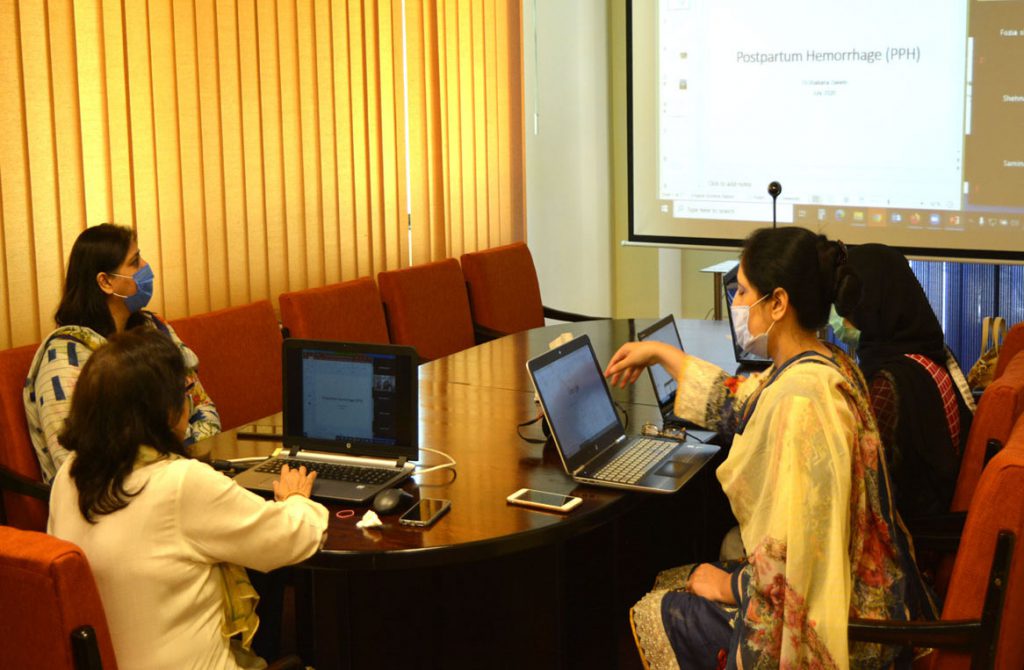 attendants (SBAs) who are the frontline workers in a telehealth system catering to maternal health and childcare needs. Dealing patients on a one-to-one basis to provide the medical care of a very sensitive nature, these attendants are the backbone of sexual and reproductive healthcare system.
attendants (SBAs) who are the frontline workers in a telehealth system catering to maternal health and childcare needs. Dealing patients on a one-to-one basis to provide the medical care of a very sensitive nature, these attendants are the backbone of sexual and reproductive healthcare system.
The training was held in two batches of 5-days each, wherein twenty-six SBAs, including the Lady Health Visitors (LHVs) and Community Midwives (CMWs) from telehealth clinics of Punjab, Sindh, and Khyber Pakhtunkhwa provinces learned new concepts and techniques in SRH along with a recap refresher of the older ones still in use.
Professionals that imparted and coordinated training in this phase belonged to WHO Islamabad, MoNHSR&C, Health Services Academy Islamabad, Dow Medical College and Civil Hospital in Karachi, and COMSATS Telehealth Islamabad.
Interactive lectures supported by visual aids and video demonstrations 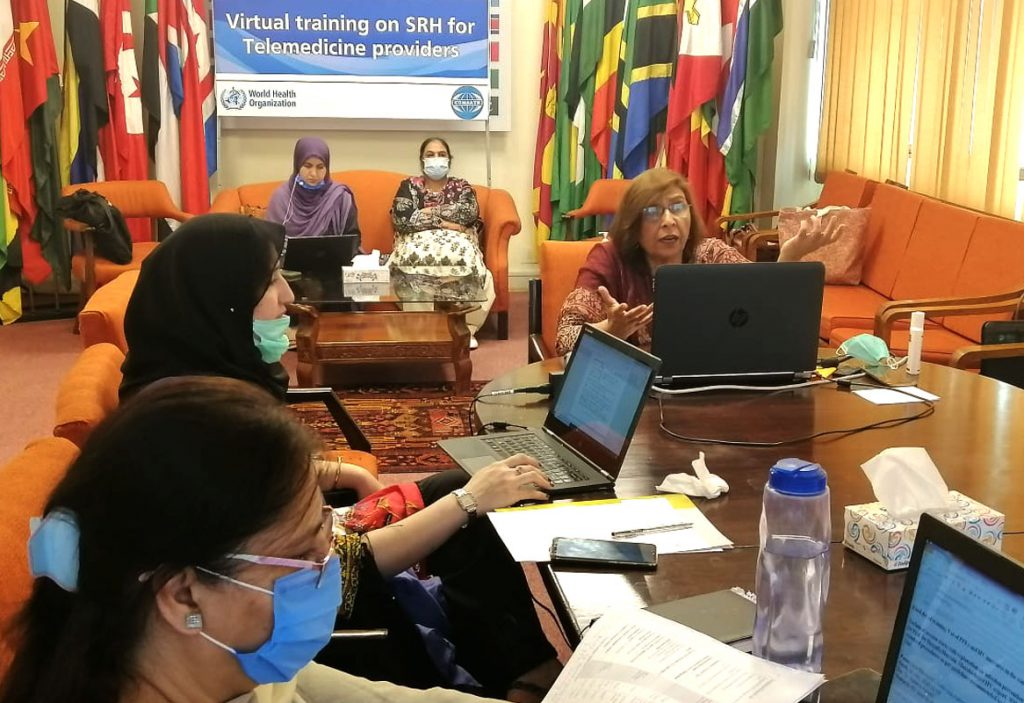 were given to the participants on topics which, inter alia, included: effective ways for visual data collection and video interaction; pre-natal care with special considerations for COVID19 in pregnancy and when to refer; routine care in labour, delivery and post-partum care as per guidelines provided by WHO; significance of good mental health; effective postpartum stress management; family planning methods and techniques; adolescent health; and SRH self-care interventions.
were given to the participants on topics which, inter alia, included: effective ways for visual data collection and video interaction; pre-natal care with special considerations for COVID19 in pregnancy and when to refer; routine care in labour, delivery and post-partum care as per guidelines provided by WHO; significance of good mental health; effective postpartum stress management; family planning methods and techniques; adolescent health; and SRH self-care interventions.
Dr. Nirmini Hemachandra from WHO Regional Office for the Eastern Mediterranean, Egypt, joined the closing ceremony held on 24th July 2020. Mentioning these trainings first of its kind initiative in the EMRO region, she appreciated the efforts of the organizers and congratulated participants on successful completion of the training.
Speaking on the occasion, Dr. Atiya Aabroo, Deputy Director (Programmes) at MoNHSR&C, deemed scaling up of such trainings important so as to benefit relevant actors all across Pakistan. In her closing remarks, Technical Officer WHO, Ms. Ellen Thom, appreciated COMSATS and thanked Executive Director of COMSATS for supporting the activity. Representatives from participating organizations, Sehat Kahani and Human Development Foundation, also provided feedback and considered the training useful in upgrading participants’ knowledge and skills.
The training also helped address existing misconceptions and taboos on SRH as skilled birth attendants are the first point of care from where such issues can be duly addressed.

